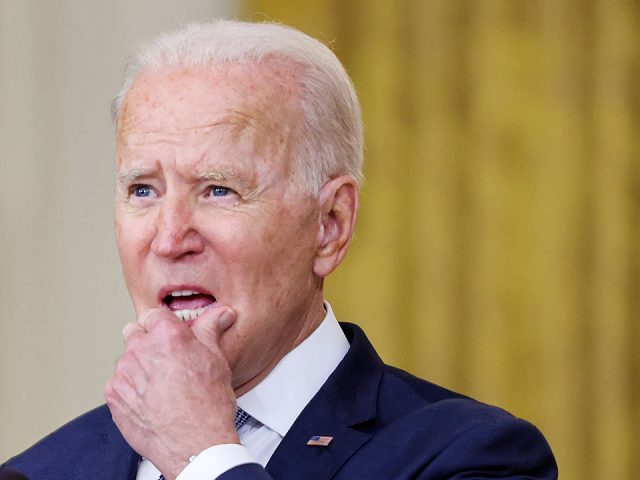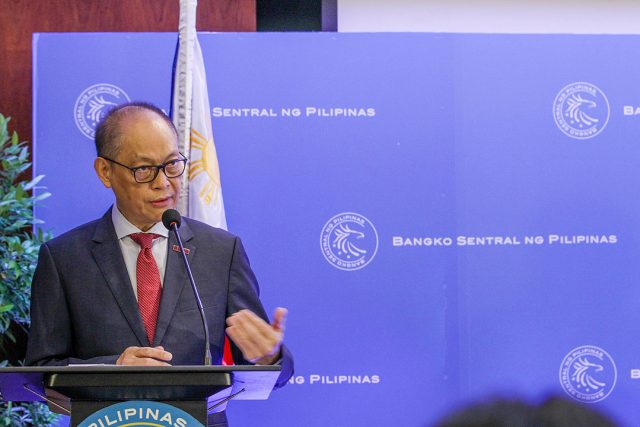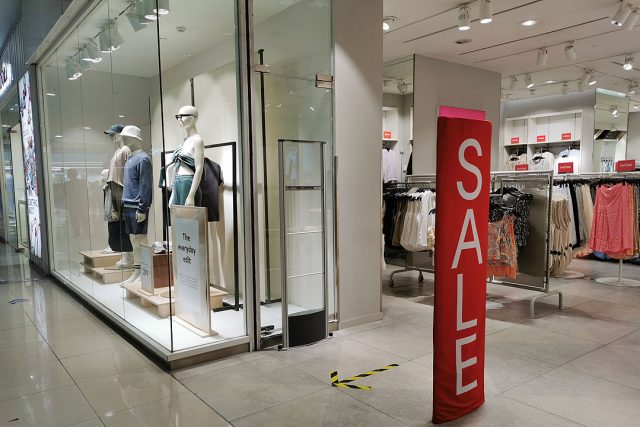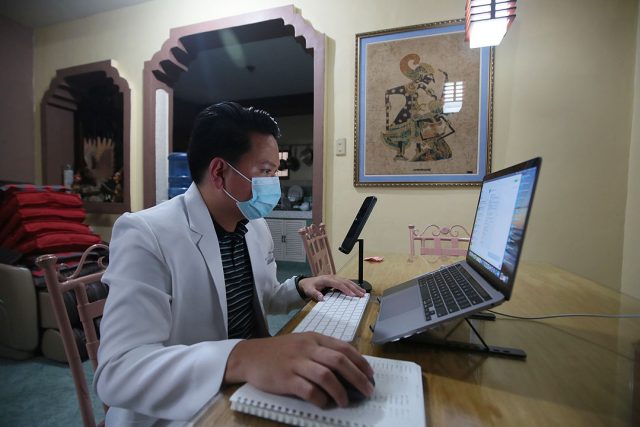AS CENTRAL BANKS around the world have started taking steps to unwind policy support, Bangko Sentral ng Pilipinas (BSP) Governor Benjamin E. Diokno said the timing of the exit from its easy policy “remains very uncertain” but assured the transition would be done smoothly.
“Given the nascent economic recovery, the priority for the BSP is to ensure the sustainability of the recovery and prevent long-term scarring effects,” Mr. Diokno said at an online briefing on Thursday.
“We would like to emphasize that the timing of the exit remains very much uncertain at this time. The threat of further coronavirus disease 2019 (COVID-19) infections continues to pose a downside risk to both growth and inflation in the coming months,” he added.
The Health department on Thursday reported 17,220 new COVID-19 cases, bringing active cases to 56,561.
Mr. Diokno said the BSP’s approach will be “outcome-based” and not a calendar-based exit strategy. He said this will depend on the evolution of various domestic factors including liquidity and credit dynamics, financial sector risk and the state of public health as well as evolving global developments and potential spillovers.
In his presentation, Mr. Diokno outlined the BSP’s exit strategy, which include returning-to-normal operations, unwinding liquidity provision, reducing monetary accommodation, and preparing for the next crisis.
Under the strategy’s reduction of monetary accommodation component, there will be an eventual raising of interest rates “when prospects for the economy have materially improved.”
The central bank kept policy rates at record lows for the entire 2021 to support recovery, with the BSP stressing that elevated inflation caused by low supply in meat products will be better addressed by non-monetary measures. Prior to this, the Monetary Board slashed rates by a total of 200 basis points to support the economy.
This year, the Monetary Board will have its first policy review on Feb. 17.
“Future monetary policy decisions will continue to be anchored on evolving domestic and external developments to avoid unintended consequences associated with prolonged monetary accommodation, such as excessive buildup in leverage and risks to financial stability, or the emergence of inflationary pressures and disanchoring of inflation expectations,” Mr. Diokno said.
Inflation eased to 3.6% in December from 4.2% in November. This brought 2021 average inflation to 4.5%, exceeding the central bank’s 2-4% target band. The central bank expects inflation to be within target for 2022 and 2023 at 3.4% and 3.2%, respectively.
Mr. Diokno said the BSP has significantly reduced the purchase of government securities in the secondary market, noting an average of P282 million was purchased daily from Dec. 1 to 23. This is a huge decline from the peak, which he said was at an average of P14.7 billion every day in June 2020.
During the crisis, the central bank also infused about P2.3 trillion in liquidity support to the financial system, which is equivalent to about 12.5% of GDP.
“In deciding to scale back BSP liquidity-enhancing measures, the challenge for the BSP is in striking a delicate balance between providing adequate stimulus to the economy and preventing the buildup of inflationary pressures and risks to financial stability,” Mr. Diokno said.
The Philippine economy rose by 7.1 year on year in the third quarter of 2021, bringing the nine-month average last year to 4.9%. The government is targeting 5-5.5% gross domestic product (GDP) growth for the full-year 2021.
For this year, the government expects GDP to grow by 7-9%.
DIRECT ADVANCES
Meanwhile, the central bank approved another P300-billion loan to the National Government to support the economy, Mr. Diokno said.
The amount is lower than previous direct advances extended, reflecting the BSP’s approach to gradually unwind support measures rolled out during the pandemic.
“In approving the National Government’s request, the Monetary Board recognized that fiscal authorities still need to continue using available policy space in order to support the economic recovery through targeted initiatives such as social safety nets, as well as through the acceleration of the vaccination program and the recalibration of quarantine protocols,” the BSP chief said.
The loan, which was approved on Dec. 16, will bear a zero-interest rate. Mr. Diokno said the loan was approved after the National Government fully settled its P540-billion debt obligation on Dec. 10.
National Treasurer Rosalia V. de Leon in a Viber message said the loan terms will be the same — payable within three months, with possible extension for another three months.
This latest budgetary support is the fifth time the BSP extended direct advances to the National Government since the pandemic. The first one amounted to P300 billion in March 2020 and the rest were worth P540 billion each in October 2020, January 2021, and July 2021.
Asked whether he sees further reduction in budget support within the year, Mr. Diokno said: “That is our expectation but that will depend on Department of Finance.”
Under Republic Act 11494 or the Bayanihan to Recover as One Act, the central bank is authorized to lend the National Government an equivalent of 30% of its average revenue or P850 billion. This is higher than the cap set at 20% of its average annual revenue provided by Republic Act 7653 or The New Central Bank Act.
The International Monetary Fund has earlier said that the gradual phasing out of direct budgetary financing should be the BSP’s first step in its policy normalization once recovery takes hold. — Luz Wendy T. Noble










